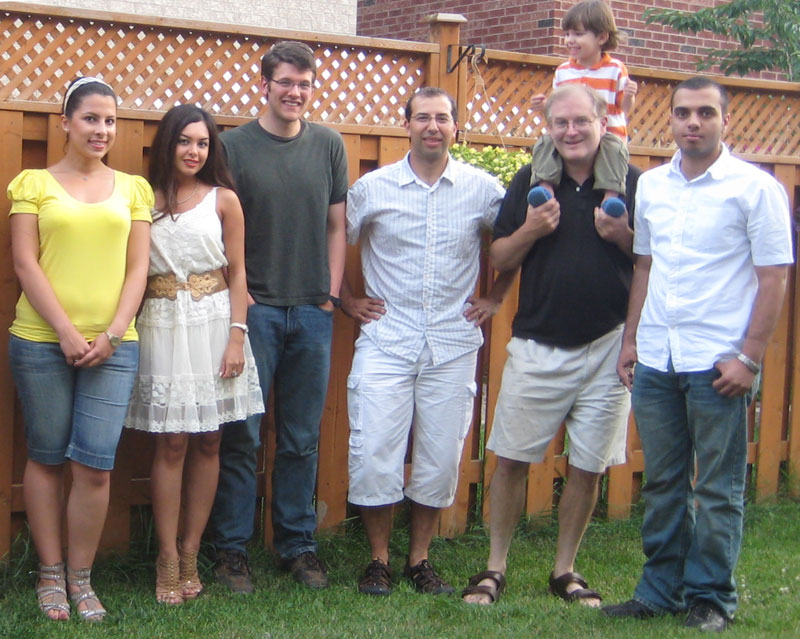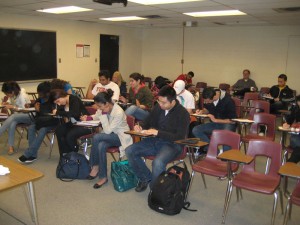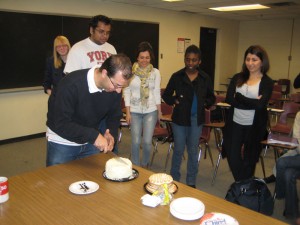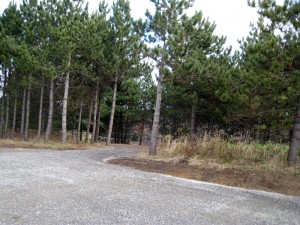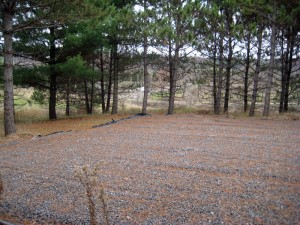Shermineh Minai joins the lab
Another big welcome to Shermineh Minai who will start her graduate work on the effects of gene expression on molecular evolution in honey bees. Shermineh completed her BSc in Biology at York University in 2010 with a solid background in Computer Science (Azad University, Iran) and Math (Dalhousie Univeristy, Nova Scotia).
Brock Harpur joins the lab
A big welcome to our incoming grad student Brock Harpur who officially joined the lab last week. Brock joined us from the University of Northern British Colombia (BSc). He is a 2010 Julie Payette NSERC Research Scholarship awardee – Congrats Brock!
Brock plans to launch (Payette-style) his graduate work with a molecular evolution study of innate immunity in the honey bee.
The bees arrive!
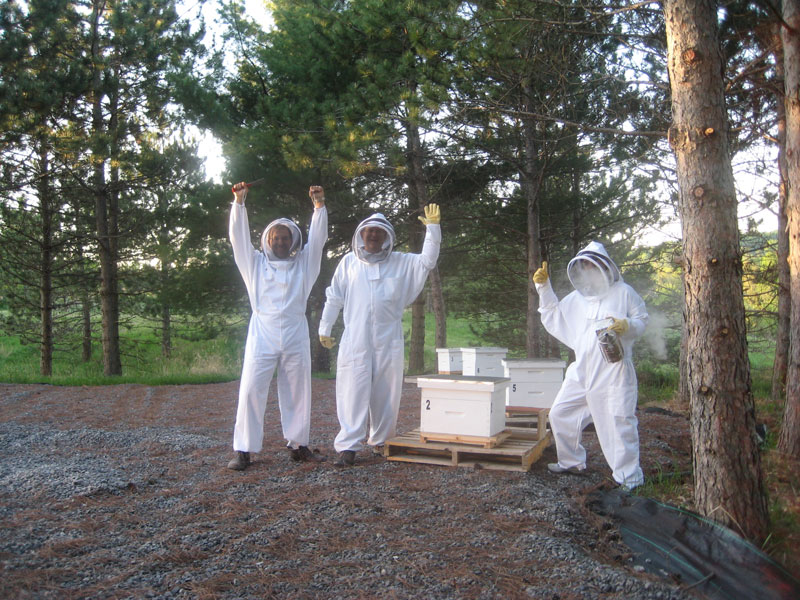 I spent the day driving royalty across the province! Clement and I picked up nucleus colonies nearby London, Ontario, and drove them back to our Research Apiary north of Toronto. Clement, Jen and I then spent a few hours moving the bees into our hives and making sure they were well fed. The queens, workers and drones made it safely and are happy in their new home. This officially starts the first bee season for the Zayed lab 🙂 Long live the queen!
I spent the day driving royalty across the province! Clement and I picked up nucleus colonies nearby London, Ontario, and drove them back to our Research Apiary north of Toronto. Clement, Jen and I then spent a few hours moving the bees into our hives and making sure they were well fed. The queens, workers and drones made it safely and are happy in their new home. This officially starts the first bee season for the Zayed lab 🙂 Long live the queen!
Save the bees… Kill your grass!
Ask not what your bees can do for your lawn, but what your lawn can do for your bees?
Pollinator gardens are a great way to create habitat and provide food for bees, butterflies and birds. With the help of fellow lab member and Supreme Gardener, Clement Kent, I am transforming my boring grass front yard to a native pollinator garden. Grass had it coming – it just sits there and does nothing, all the while consuming precious water and eating up fertilizers; don’t even get me started on the constant mowing!…
Clement, our green crusader, has setup a great blog to mark his quest in transforming Toronto’s lawns to beautiful pollinator gardens, check it out at http://pollinatorgardens.blogspot.com/
Amro
Summer RAYs
Our lab’s 2010 summer cohort of Research at York (RAY) students are:
Alexandra Bunting, Amer Issa, and Mandana Aryaee ; congrats!
Eat your population genetics!
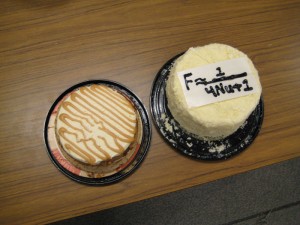
Caramel Crunch or Autozygosity with drift and mutation?
Last week was a bit of a milestone for me. It was the grande finale of my first course as a professor. I developed and taught a 4th year course on population genetics and I was fortunate to have a really great group of students. To celebrate, I delivered the final quiz of the term using the best and tastiest medium for disseminating higher knowledge – cake! The students had to explain the meaning of the equation inscribed on the cake (extra points were given for the complete derivation :)). [hint: it was called the mutation-drift cake !]
Thanks all!
Amro
NSERC funds the Zayed lab’s research on bee behavioural genomics
The Natural Sciences and Engineering Research Council of Canada (NSERC) will fund Dr. Amro Zayed’s Discovery Program proposal titled “Genomic studies of complex behaviour: honey bee genes, behaviour, and adaptation” from 2010 to 2015. Visit www.nserc-crsng.gc.ca for more details. The funding will be used to integrate genomics and population genetics to study the evolution and genetic mechanisms underlying worker behaviour in honey bee colonies.
Apiary near completion
I can’t wait for the bee season to start! Its been getting warmer and less gray here in Toronto. Bee season is a month and half away, and I am very happy to announce the near completion of the Zayed Lab’s research apiary. The research apiary will consist of a bee yard to keep honey bee colonies, and a near-by laboratory to setup experiments. Here are a few pictures of the site from last fall. I’ll post more pictures once we get going with the bees in April/May.
Amro
